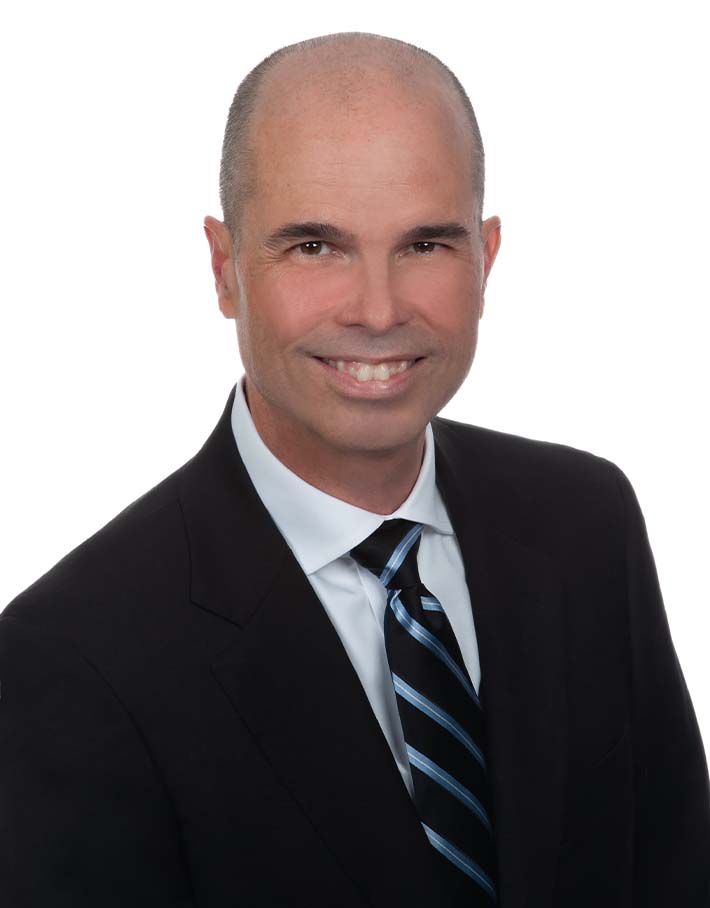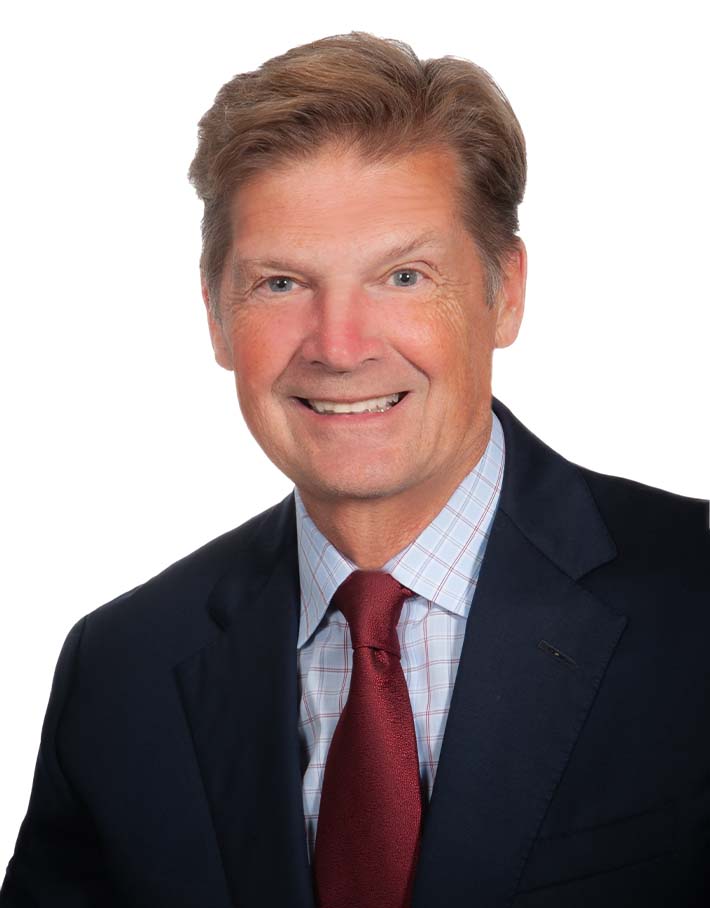Strategic Planning – Attracting Talent and Multi-Generational Clients
By Buddy Doyle and David Williams
Subscribe to our original industry insights
In our previous podcast about strategic planning, Oyster experts discussed challenges we are hearing from our clients, from managing the effects of industry trends and technology to succession planning. In this episode, our experts continue their strategic planning discussion with a focus on three pressing priorities for wealth management and broker-dealer firms: attracting top talent, building lasting client relationships across generations, and addressing growing cybersecurity risks.
Recruiting and Retaining Top Talent
Recruitment isn’t just about filling positions—it’s about deliberately building the future of your firm. Listen as our experts explore the challenges firms face in attracting younger professionals to the financial services industry, why recruiting requires dedicated resources, and how culture, career progression, and transparency can be just as powerful as financial incentives when it comes to retaining employees and advisors.
The Multi-Generational Client Challenge
Demographics are shifting, and so are client expectations. Discover how firms can strengthen relationships beyond the current generation of wealth holders, building the kind of client relationships that protect and grow assets for decades to come.
Cybersecurity: Protecting Firms and Clients
As more firms embrace digital tools and hybrid workplaces, cybersecurity risks continue to grow. Learn about common vulnerabilities, phishing threats targeting clients, and why ongoing training and strong policies matter just as much as technology.
Turning Strategy Into Action
Recruiting, multi-generational wealth management, and cybersecurity are interconnected pieces of a larger strategic puzzle. Firms that address these challenges proactively position themselves to compete more effectively, serve clients more fully, and protect both their people and their reputations.
Listen Now
Why Partner With Oyster
The transformation from getting your business up and running to creating a scalable business for growth and then effectively managing that optimized business doesn’t happen overnight.
Oyster Consulting offers a range of services designed to help you create a sustainable business plan, identify opportunities, streamline operations, and maximize value. At Oyster, our experts combine deep industry experience with hands-on expertise to help firms manage risks and seize opportunities. We work side-by-side with you to drive sustainable growth.
Transcript
Transcript provided by TEMI
Libby Hall: Hi, and welcome to the Oyster Stew podcast. I’m Libby Hall, Director of Communications for Oyster Consulting. In our previous podcast about strategic planning for 2023 Oyster Consulting CEO, Buddy Doyle, and Head of Business Development, David Williams, talked about challenges we are hearing from our clients from managing the effects of industry trends and technology all the way to succession planning. In today’s Oyster Stew podcast, Buddy and Dave continue their conversation, sharing their thoughts on recruiting top talent and multi-generational wealth management clients, and some risks to consider along the way we’ll pick up where Buddy and Dave left off.
Buddy Doyle: Well, thank you, Libby. Welcome everybody to Oyster Stew. I’m Buddy Doyle. I’m the Chief Executive Officer of Oyster Consulting, and I’m really pleased to be joined today by our Head of Business Development, Dave Williams. So, another hot topic that has come up lately has been about attracting talent and retaining your employees. And I think that there’s a couple of things that go along with that, but Dave, I know you spend a lot of time thinking about how we bring in the next generation of leadership in different organizations. Can you talk a little bit about where firms are focusing and what they’re trying to accomplish?
Dave Williams: Yes, Buddy. Absolutely. So, with many of the firms that we talked to, the ownership, I’ll just say, is up there in years. And we talked a little bit about succession planning earlier. But as you are looking to attract younger individuals into your firm, that could be in the form of part of your support staff, your management team, your leadership team, or it could be financial advisors. That’s an important element of keeping a firm as an ongoing entity. We’ve seen less of an attraction to our business, I think, in the last decade or so than in decades before that where it was fairly easy to attract young talent into our business. But I think that’s changed a little bit. I think, it’s harder to get experienced individuals into our business. And we can talk a little bit about specifically, around the compliance side of the business. But I would say in general most firms aren’t thinking about attracting new young talent because they’re so buried into the day to day activities of their firm. But if your focus and your goal is to keep your firm as an ongoing entity, you need to attract younger people into your business.
Buddy Doyle: Yeah. And I think it is a bit of a different animal, but I’ve always found it interesting that recruiting is a process. And there are people that are really, really great at it. And they have certain methods about going about it. I do think you have to be deliberate in your recruiting. I think when you’re, if you are trying to attract younger talent into your organization, you have to ask yourself, what am I attracting them to? How do I become the kind of firm that would attract folks into the business? And that’s an interesting question to ask yourself sometimes is – what do I have to do different.
Dave Williams: It’s a great time to look at yourselves introspectively from a management and an ownership standpoint. To your point Buddy is, what is attractive? What is exciting about joining your firm? Have you taken a step backwards and done that critical look of your firm. And maybe put yourself in the shoes of a younger person who potentially can join your firm. What would be the reason that person would want to join your firm? What are the growth possibilities from a career standpoint within your firm? What is that next step process? Because certainly everybody looks when they join a firm. They know what’s straight ahead of them, but everybody’s always looking for that next career step, that next promotional step. Do you have that kind of vision or that kind of transparency within your organization where that can easily be seen. Where every younger person knows that there are other career steps within your organization.
And when you said recruitment, my mind immediately went to financial advisors and recruiting financial advisors is also a full-time job. I’ve seen so many firms that want to grow by adding new financial advisors. And that makes perfect sense. But how are you going about that activity? Do you have a dedicated person where the majority of that person’s job is recruiting? Recruiting is not a part-time job, especially if you’re a smaller organization that cannot compete with some of the financial incentives the larger organizations throw at potential recruits out there. And that just puts into play how important it is, if you don’t have those financial dollars to recruit. What is going to attract a financial advisor to your firm, if those financial incentives aren’t there compared to some of the larger firms out there? There has to be a cultural reason why an advisor wants to join your firm that transcends the dollar aspect of it.
Buddy Doyle: Yeah, I think so. Otherwise your recruiting is temporary. I think we’ve all seen the folks out there and know folks that go from check to check with forgivable loans and let it expire, and then they’re off to the next place. But I do think you need to have a good cultural reason for people to join you, especially if you want to get the next generation of talent into your organization. It does seem like folks are driven by different things that aren’t a hundred percent financial. Some people will make a hundred percent decision on financials. You’ve got to figure out who you want, how you want to bring them in and how you want to make them happy and keep them.
Dave Williams: Yeah, and I think there’s certainly an element that the financial consideration for the financial advisor is very important, but we’re seeing many more advisors now looking at what their last career step might look like. And the financial part of it is not necessarily at the top of the list. This whole concept of independence, which can mean many, many different things, I think is really what is getting the attention of a lot of financial advisors out there. There’s a lot of different alternatives, a lot of different business models where instead of the firm being promoted with the business, the financial advisor is hanging his shingle or her shingle out in front. And that’s a very, very important consideration because that equals ownership of their perspective practice as they go forward.
Buddy Doyle: And that opens more opportunity. Because you get folks owning their own practice, and then they have to think about their succession planning as well. And what that looks like, not just joining your organization, but what it looks like when they’re ready to grab the bear ring and retire if they ever get to that. And not everyone will, but I think that that it opens up a different kind of conversation about recruiting, which is recruiting in bulk through acquisitions which is another thing to consider out there. And when margins are compressed and fees are compressed, scale matters more, and sometimes you’re looking at your organization and your growth goals, and it’s hard to do that pulling in one person at a time.
Dave Williams: Yep, right. We almost went down the acquisition, we’ll get there eventually. What about talking about where to get quality people, how are you finding these people? Are you LinkedIn? Or are you recruiting? How are you recruiting these people? What’s your strategy? That kind of thing. I don’t know if that’s something we can really speak to or not.
Buddy Doyle: Yeah. We can talk about that. Yeah.
Dave Williams: Yeah, absolutely. I’ll kick that off, Buddy. So from a recruiting standpoint, there’s a lot of different ways that firms look to attract new financial advisors. Some firms use outside recruiting organizations. There’s many of those out there. They can be a little pricey sometimes. Usually you’re competing with other larger firms who have potentially bigger checks than you have. To me, recruiting is a little bit of hand-to-hand combat. And if you’re overseeing recruiting in your firm, and it’s a big portion of what you do at that firm, you should be thinking about knowing every financial advisor that you want to do business with. So if you’re in a city, you should be thinking about – who are the financial advisors that I want to get to know. How do I meet them? How do I interact with them?
Chances are, they’re probably happy where they are, but you’re waiting for that event in their lives. And we all know events always are occurring where that first phone call they make is to you, because you’ve built up a relationship with them. They’ve gotten to know you, they’ve gotten to know your firm a little bit. They might have been happy last year, but this year they’re not quite as happy. You’ve already established that relationship with them. So you’re, you’re already a lead candidate from a recruiting standpoint. It’s a lot of work. It’s a lot of breakfasts. There’s a lot of lunches and dinners. There’s a lot of meetings to build up those relationships. But I can’t think of a better way from a recruiting standpoint is to interact with those advisors out there that you want to do business with or have join your firm.
Buddy Doyle: Yeah. And I think understanding how they like to interact is really important as well. To make sure that you’re pulling in the kinds of folks that you can support and help. And I do think it is a long-term strategy of recruiting. The best recruiters I’ve seen do it exactly the way you described, Dave. And it is an ongoing process of continuously reaching out in the way that matters to the recruit.
Dave Williams: It is definitely, it is absolutely a process is a good word to describe it, Buddy. It is a process, and it takes a fair amount of time, and there’s a lot of diligence required to keep in touch with those individuals that you in the future want to have join your firm. It’s just, it’s a fair amount of work. It’s tough work.
Buddy Doyle: Yep. Especially if you’re trying to get the best ones. Because that’s right, Dave, I agree with you a hundred percent. It is really hard to get a successful advisor to move because they’re successful. So why would I change? So I think those are all things that that are really important to consider and be circumspect about your message. And ask yourself – if I was sitting in that other person’s chair. I think we all have our perspective on things. It’s hard to get the other person’s perspective on a topic, but you need somebody around you that can share that.
Buddy Doyle: And then I think the other thing is again, talking, not just about the next generation of talent in your firm, but the next generation of clients and how you’re your focused on your client acquisition strategies and client growth strategies. And boy, it seems like some firms have just gone into – hopefully we can retain some of these clients. And I think we’re seeing, and continue to see population changes and consumer preference changes and things like that. But it’s an interesting time for the industry because we’re kind of getting through the old school broker dealer ways of doing things that were the way we did it when I joined the business in the eighties. And, when I came in, everybody talked to dad. And the broker talked to dad about the money and mom might be there or whatever, but they were always talking to dad. Well, mom outlives dad is generally the way the math works. So how do you keep those assets? How do you keep the children’s assets? How do you create these multi-generational relationships to grow your business if you want to? I think that’s another thing to think through.
Dave Williams: Yeah. Obviously the assets are with the older generation. The younger generation is growing their net worth. Not nearly as large as the parents, but it’s still as important to build that relationship with those younger family members because when your clients pass on, you don’t want those assets leaving you. And there’s so many different alternatives that are attracting younger investors, nowadays. Mostly digital types of methodologies, some of which are not really investing. It is there, you could probably call them gambling, closer to investing. And that seems exciting to a younger investor, but those of us that have been in the business many decades know that is not a very good long-term strategy because it’ll eventually come crashing down. You have got to separate those exciting types of ways that younger investors get attracted to, to really what long-term investing is.
Buddy Doyle: Yeah. I think it is an important process that you’ve got to go through with younger investors, from speculating to investing. And what’s the difference between those two things? And then really, can you keep them, can you attract them, can they look on their phone and see what their account looks like? If they can’t, they’re probably not going to be as excited. So I think that is something to look at and there is a whole way people are doing business again. You’ve got to also watch from a risk perspective of who’s out there talking on Reddit about what stocks. And what’s that causing to happen at your organization is going to be really important for you to be able to keep your eye on how things are changing. And consumer preferences have definitely moved and they continue to move.
Dave Williams: Do we want to hit on maybe cybersecurity a little bit and the risk associated with that? Because actually close to home without mentioning any names, they had a cybersecurity incident which we’ve all seen before. Do you want to kick cyber security off Buddy? And I’ll kind of I’ll come in.
Buddy Doyle: Yeah, that sounds good. So, you know, it’s hard to change your business process to become a digital provider of services to your clients without talking about cyber security and not just with your clients, but with your employees as well. As we’ve seen, there’s a lot more people working out of their homes than there used to be. Some firms have gone hybrid; some firms are a hundred percent in the office. But I think by and large, we’ve seen a much larger population working remotely, and that gets into cyber security and the seriousness of the impact that you can have from a cyber security perspective. If you’ve never been through a breach before it’s an interesting exercise to go through and one that you need to be prepared to go through. But Dave, have you heard any firms talking about cyber security and some of the – there’s a reputational risk that obviously goes with that. If you think about target and all that stuff from years gone by, but what are firms doing there?
Dave Williams: Know it’s not only cyber security within your business and your organization, which is certainly paramount in importance, but where you’re also at risk is the cyber security of your clients. Probably millions of times a day bad individuals are trying to hack into your client’s email accounts. And a lot of clients interact with their firms via email. And we’ve all seen those incidences where an email comes into the home office requesting some kind of wire out of usually a fair amount of money. It could be even a small amount of money to see if they can work their way through your organization. Almost every firm has policies and procedures to prevent this from happening. But all it takes is one situation where one of your support staff does not follow that policy and procedure and wires out that money. And it’s usually gone forever. So you think about policies and procedures within an organization, critical element, but are you making sure that they’re being followed on a periodic basis because all it takes is one situation where that person doesn’t follow it and the money’s wired out and it’s usually a pretty big loss.
Buddy Doyle: It can be a pretty big loss and it’s one of those things where you can’t train too much on this. And you should work the cyber security and client protection into routine conversations because it is really hard. We’re trusting individuals by and large, and when we get something we’re pretty sure it’s real, because it has been real all the other times. And I’ve even seen firms with callback procedures where that somebody calling back wouldn’t know who was on the other end of the phone anyway. So we’re going to see some Reg SID. We’ve seen some Reg SID, which is protecting your customer’s identity, enforcement actions coming. I think we’re going to hear more about that because it’s an electronic world. Now it’s a remote world. People aren’t coming into the office as much to do business.
And I think that we’ve got to be prepared for that. And it is all aspects of, of cyber security back. When I used to do the cyber security training as a consultant, you know, my first slide was always the same slide which was a guy in a criminal mask sitting in a computer and a guy with a big bone for a head – bad guys and bone heads. And you have to protect against both. You have to not only protect against the criminal, that’s trying to break into your office. And if you don’t think they’re trying to do it, you should look at your firewall lock someday because they are. So if you don’t think you’re being attacked, you might want to get some more information because you probably are. But then it’s the people that just make the mistake.
And it’s not ill intentioned. It’s not bad things, but criminals are really good at what they do. That’s how they make their living. That’s what they’re looking for. This code you buy on the dark web has a very high rate of return. Most portfolio managers would be envious. But it doesn’t work a lot, but it only has to work a little. And it feels really bad if it’s you. But there are things you can do to not only protect yourself through policies and procedures, but insurance as well. Make sure you’ve got a good understanding of what the cost of a breach is in 2022 and ask yourself – have you insured yourself for that cost or are you ready to self-insure for that cost. Because it is really important and it’s email phishing scams, it’s direct hacking attempts going on, it’s locking down the computer. So people can’t install a piece of software with a piece of malicious software included in it. It’s a really big deal. And we spend a lot of time on that here at Oyster. It is a huge risk.
I almost hate talking about it by the way. Another big, important piece of cyber security is your software development life cycle practices and your change control in your organization. You’ve got to have somebody looking at how you implement new policies, procedures, new software. That all goes into the same bucket. You need to make sure somebody’s asking those risk questions as you’re going through business changes. And if you’re sharing your data with an outside vendor, that’s your responsibility. So yes, you can outsource the risk. No. Well I’ve seen it too many times where vendors just lose the data and it’s tough.
So that’s all the time we have for today. Thanks for listening. We really do appreciate it and we hope you’ll tune back in for future podcasts.
Libby Hall: Thanks everyone for listening. If you’d like to learn more about our experts and how Oyster can help your firm visit our website@oysterllc.com. And if you like what you heard today, follow us on whatever platform you listen to and give us a review. Reviews make it easier for people to find us. Have a great day.




